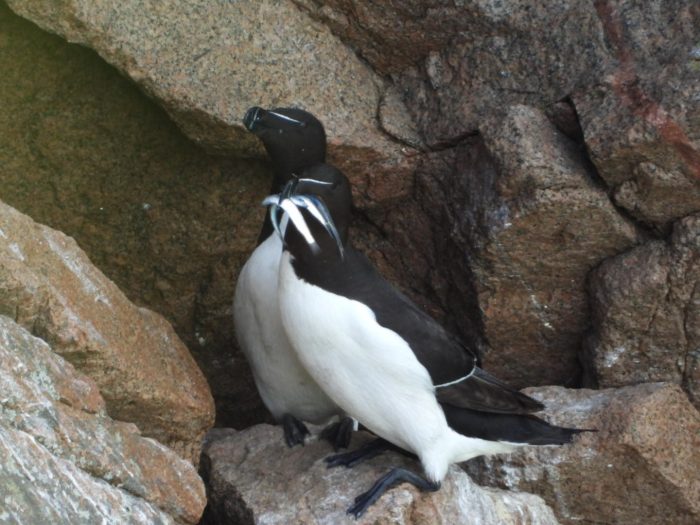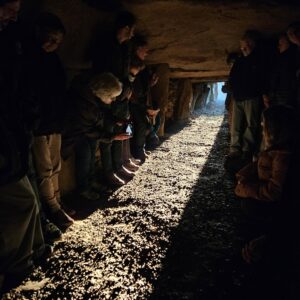
It was (also!) World Seabird Day on 4 July. It is estimated that 70-75% of seabirds are facing extinction globally.
Birds On The Edge has reported that one puffin pair, four razorbill pairs, and many fulmars are missing from Jersey’s north coast. Predation is suspected. Despite this, three remaining puffin pairs successfully raised chicks. Hopes remain for the return of missing seabirds next year.
They say that between 2018 and 2023 there seemed to be a stable number in Jersey with four pairs of puffins (eight individuals) that used the same nests every year. These puffins breed amongst other seabirds such as Razorbills and Fulmars, sharing some of the slopes and cliffs with them, but using separate crevices and burrows for their nests.
Unfortunately, this year a group of seabirds seem to be missing from a particular spot in the north coast, including one of Jersey’s puffin pairs.
The seabirds that are missing used to nest in a particular slope between Plémont and Grève de Lecq, and include a pair of puffins, four pairs of razorbills, and more than ten pairs of fulmars. Only three pairs of fulmars are left in this spot, down from 16 pairs in 2023. No Razorbills or Puffins remain at this spot.
During autumn and winter, these seabirds join hundreds of others from different colonies as they travel far into the Atlantic Ocean. While deaths at sea are a common cause of sea bird death during the winter months, it seems highly unlikely that all the birds from this specific spot suffered the same fate, while other birds breeding in nearby cliffs are all present.
Introduced non-native predators remain the most important threat to seabird at their breeding grounds worldwide (IUCN report 2023).
In more positive news, the remaining three pairs of puffins have been successful in raising a ‘puffling’ each, as all have been seen delivering fish and a bounty of sand eels to their respective burrows.
It is hoped that not all the missing seabirds have perished, and that whatever has affected them this year does not stop them from returning to Jersey’s shores next year, and to attempt to breed again.




